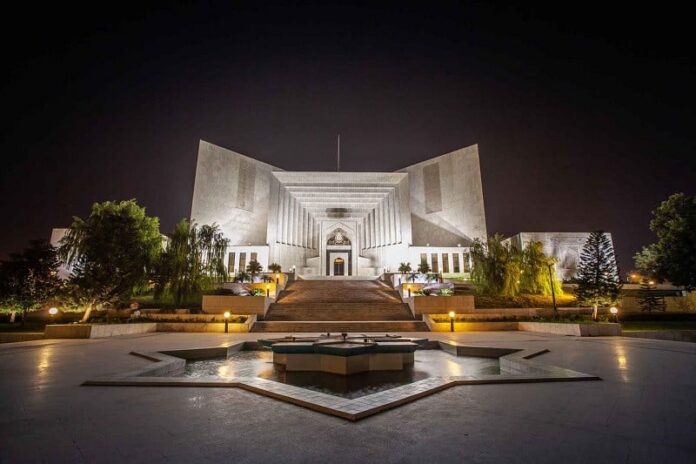In the Mubarak Sani review case, the Supreme Court of Pakistan has granted the federal government’s appeal, striking out paragraph 7 of the earlier ruling.
On Thursday, the Supreme Court declared that the sentence that was removed from the Mubarak Sani review ruling could not serve as a precedent for future cases.
In response to the Punjab government’s review petition, the Supreme Court had previously asked religious experts for advice, including Mufti Taqi Usmani and Maulana Fazlur Rehman among others. Chief Justice Qazi Faez Isa presided over a three-person bench during the hearing.
Participating via video link from Turkiye was Mufti Taqi Usmani; other experts in addition to Attorney General Maulana Fazlur Rehman were present in court.
The Attorney General stated that Parliament and religious authorities had pushed the federal government to send the case back to the Supreme Court after the first ruling. He clarified that because additional review was not feasible, the petition was filed under civil procedure.
“I personally hope in every prayer that no wrong decisions are made,” Chief Justice Qazi Faez Isa said, highlighting the seriousness of the issue and the significance of judicial integrity. Noting that he had attended the Parliament’s 50th anniversary, he further appreciated the work of Parliament.
The court resolved to confer with the existing scholars, Maulana Fazlur Rehman, and Mufti Sher Muhammad. Fareed Paracha of Jamaat-e-Islami will also support the court.
In accordance with the Punjab Holy Quran (Printing and Recording) (Amendment) Act, 2021, Mubarak Ahmad Sani was charged and found guilty. But since his offense happened prior to the law’s passage, he was granted bail and released. The government of Punjab submitted a review petition, requesting amendments to make constitutional rights pertaining to law, public order, and morals more clear.
The Supreme Court maintained the petition on July 24, stating that morality, the law, and public order all apply to religious freedom and the right to practice one’s religion. Later, the Council of Islamic Ideology expressed concerns and asked the court to reevaluate its ruling.


